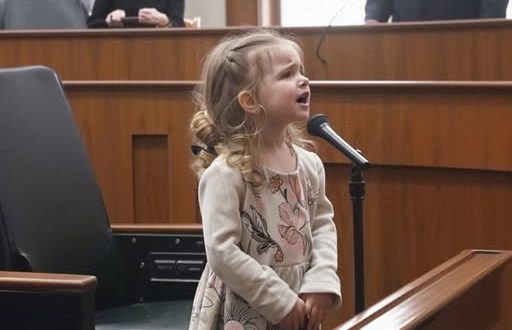Falling in love can sometimes lead us to unexpected places and tough life lessons, as one man discovered when he opened his heart to someone who wasn’t ready to embrace adult responsibilities.
The story centers around a young man named Mark, who attended college with a girl named Molly—someone he initially admired from afar.
She was popular, beautiful, and seemed always to gravitate towards the top athletes on campus. Although Molly never saw Mark as more than a friend, he valued their closeness, appreciating her spirit, charisma, and her knack for navigating student life.
He accepted that his deeper feelings might remain unrequited, finding comfort instead in her friendship.
Everything changed when Molly faced a significant turning point. After an intense relationship with Tanner, the college football team’s captain, Molly’s life took a sharp turn. Tanner broke things off unexpectedly and almost immediately began dating someone else. Heartbroken and disappointed, Molly leaned on Mark for support. He offered a listening ear, soft words of encouragement, and the kind of nonjudgmental reassurance a true friend provides. Little did either of them know that this emotional upheaval was only the beginning.
About a month later, Molly delivered news that would alter both their futures: she was pregnant. The father was none other than Tanner, who, when informed, refused any involvement and allegedly advised Molly to terminate the pregnancy. Faced with the possibility of becoming a single mother during her college years, Molly was overwhelmed. She worried how her parents would react, how she could juggle her studies and a child, and what life might look like in the coming months. It’s one thing to plan a life path at twenty-something; it’s another to have it derailed by an unexpected pregnancy and the absence of a supportive partner.
In a surprising act of compassion and love, Mark offered a radical solution. He proposed marriage—not as a grand romantic gesture to claim Molly as his own, but as a means to protect her from the stigma of single parenthood and to ensure that her child would have a supportive family figure. He wanted to stand by her side, even if she did not share his feelings. Molly, still reeling from Tanner’s rejection and the weight of her predicament, hesitated. Yet Mark’s sincerity—his willingness to help without asking for love in return—convinced her to move forward. They married quietly, with just a few friends to witness the unorthodox union. It was a decision founded on empathy and duty, not conventional romance.
As the months rolled by, Mark did everything he could to help. Both were college students with limited means, but he assisted Molly through her pregnancy, doing his best to ensure her comfort. Over time, his excitement about becoming a father figure grew. Despite knowing the baby was Tanner’s, Mark envisioned a future as a dedicated, caring dad, someone who could help shape this child’s life positively. The couple welcomed a baby girl named Amelia, who quickly became Mark’s world. He adored her from the moment he held her and relished the role of father, embracing every step—diaper changes, late-night feedings, lullabies, and all.
For a while, it seemed as though life had found a new equilibrium. Molly initially settled into motherhood, grateful to have Mark’s unwavering support. Yet, the reality of parenting and the sacrifices it demanded soon weighed heavily on her. The carefree college life Molly once enjoyed—going out with friends, parties, and the freedom of youth—felt out of reach. She watched Mark bond with Amelia, but the spark of genuine maternal fulfillment never fully ignited in her. Instead, resentment brewed beneath the surface. Eventually, she reached a breaking point.
One night, after putting Amelia to bed, Molly broke down. She admitted out loud that she regretted having a child, that she had lost her youth, her chance to live freely. This confession cut Mark deeply. He tried to reassure her, to remind her of Amelia’s beauty, her innocence, and how they were building a life together. But Molly remained inconsolable. She soon announced her decision: She wanted out of the marriage, out of the family they’d created. She couldn’t pretend anymore. With little warning, she packed her bags and left Mark and Amelia behind, vanishing from their lives in pursuit of the freedom she believed motherhood had denied her.
Mark was left to pick up the pieces. He became a single father overnight. Amelia, then just five years old, was old enough to sense that her mother had walked away but too young to understand why. For a long time, the little girl cried herself to sleep, missing the mother she barely got to know. Mark, wounded and puzzled, grieved the marriage he had entered out of love and altruism—only to be abandoned when he needed partnership the most. Yet he rose to the occasion, dedicating himself to Amelia’s happiness and well-being. Over time, they found a rhythm, a father-daughter duo against the world.
As the years passed, Mark watched from afar as Molly’s social media presence depicted a new life. She had returned to a college lifestyle, partying, traveling, enjoying a youth she felt was stolen. Eventually, Mark learned she had even reunited with Tanner, the man who refused accountability for the pregnancy in the first place. It stung, but Mark found solace in Amelia’s growth, achievements, and unconditional affection. He poured every ounce of love he had into being a good father.
Then, unexpectedly, Molly reemerged. Now that Amelia was older, Molly decided she wanted her back, claiming that Tanner was ready to step up as the father figure. She marched into Mark’s home, demanding custody of the child she had not cared for or even contacted in years. Mark was horrified. Not only did Molly show up as if nothing had happened, she dismissed everything Mark had done. She called him by his first name, tried to rewrite history, insisting that Amelia belonged in her “real” family—the one that included Tanner.
But Mark refused to be steamrolled. He confronted Molly with the truth: he raised Amelia, took on responsibilities Tanner shirked, and sacrificed his youth to ensure Amelia never felt unloved. The matter went to court, each side represented by fierce lawyers. Mark’s attorneys warned him that family courts often favor the biological mother. Still, he pressed on, determined to show that Amelia was thriving under his care and that Molly’s reappearance was opportunistic, not nurturing.
The testimony that made the difference came from Amelia herself. By now, nearly a teenager, she possessed the clarity to express her feelings. Asked by the judge about her preferences, Amelia spoke plainly. She described how her mother abandoned her years ago, how Mark had been the one to feed, clothe, love, and guide her. She said she considered Mark her father in every sense of the word. The courtroom fell silent as she declared she wanted to remain with him, not the woman who came back only when it suited her new life narrative.
The judge, moved by Amelia’s heartfelt words, granted Mark full custody. Molly would have visitation rights, but she could not displace the father who had always been there. Mark, though relieved, encouraged Amelia to find it in her heart to forgive her mother and build some form of relationship. He did not want Amelia carrying bitterness or unresolved anger into adulthood.
Over time, Molly visited occasionally, struggling to rebuild trust and rapport with her daughter. Amelia approached these visits cautiously, remembering the hurt of abandonment but also aware of Mark’s guidance to be compassionate. Slowly, they formed a tenuous bond—not a fairytale reunion, but at least a stepping stone towards understanding. Amelia never forgot who was truly there for her. Each day, she reminded Mark that he was the best father anyone could have, reaffirming that the love and stability he provided couldn’t be erased by Molly’s late attempts to re-enter her life.
This story offers lessons that ring true far beyond this family’s confines. It teaches us that trust and love aren’t guaranteed by biology. True parenthood is defined not just by DNA but by daily acts of care, patience, and responsibility. Mark’s unconditional support created a safe and loving environment for Amelia, trumping Molly’s belated and self-serving claims to motherhood. It also warns that running from responsibilities rarely leads to genuine happiness. Molly abandoned her family to chase youthful freedom, only to realize that regaining what she cast aside would be neither simple nor guaranteed.
As readers, we can appreciate Mark’s quiet heroism. He stood by Molly in her darkest hour without expecting love or acknowledgment. Later, when faced with adversity, he persisted for Amelia’s sake. His eventual victory in court symbolizes the reward for doing what’s right, even when it’s hard and thankless. That perseverance ensured Amelia grew up knowing she was cherished. The final message is clear: genuine love, understanding, and consistency forge the strongest bonds in a family—bonds that can withstand attempts to rewrite the past.
In a world where complicated relationships and surprising twists are common, stories like this remind us to value those who stand by us, protect our interests, and fulfill their promises. We learn that motherhood and fatherhood aren’t just titles; they’re earned through steady devotion, empathy, and sacrifice. If nothing else, this narrative reaffirms that love and parenting go far beyond bloodlines. It’s not the easy moments but the hardest trials that reveal who truly cares.
Summarized:
The author found himself captivated by a pregnant woman named Molly, only to be left heartbroken years later when she chose a path that was beyond comprehension. Molly was a lovely and upbeat girl who frequently spent time with the popular guys, typically from the school’s football team. She eventually began dating Tanner, the captain of the team, and I was truly impressed by her friendship.
Molly found out she was pregnant and felt heartbroken by Tanner’s choice to break up with her and begin a relationship with someone else. She felt a sense of comfort from the author, but deep down, she realized that being a single mom wasn’t an option for her, and the thought of her parents finding out was terrifying.
Molly turned down the idea of marrying Mark and raising the baby together, despite the author’s suggestion. She was reassured that the concern wasn’t about the baby’s future, but rather the notion of marrying to escape the challenges of single motherhood. The author knew they couldn’t let Molly face this alone, so they decided to marry her, ensuring that no one would judge her.
Molly felt unsure about the idea, but the writer reassured her that they were genuinely serious. Later that week, they headed to the courthouse, accompanied by two friends who acted as witnesses, and the whole thing was over quickly.
The narrative centers on a father supporting his daughter, Molly, as she navigates her pregnancy journey. Both of them are in college, yet they face the tough challenges of being parents. Molly, having lost her entire youth, was resolute in her decision to leave her family behind and embark on a new journey. At the age of five, Amelia had a breakdown and decided to leave, leaving her father behind all alone. Amelia’s father, always there for her, promised that her mother would be back before long.
But Molly never came back, leaving the father to navigate life as a single parent. It turned out to be more difficult than she had anticipated, and for an entire year, Amelia found herself in tears every night. The father gradually adjusted to his solitude, while the daughter frequently shared updates on her social media. She was ready to embrace the college life she had longed for, but in doing so, she left her child behind for the sake of enjoyment. Years later, she and her boyfriend Tanner reunited, and it only made the pain deeper.
Molly chose to re-enter their lives right when everything was going smoothly for them. She longed to be with her father, the one who had cared for her all those years, but he turned her down. He warned that he would seek custody of the father if it came to that, convinced that the father was her sole child. Though the father’s lawyers were relentless, it was Amelia’s testimony that truly made the difference.
The judge took the father’s worries into account and awarded him full custody, allowing Molly to have visitation on weekends. Amelia’s father urged her to let go of her grievances and reconnect with her mother, and that’s exactly what they did. Amelia kept expressing how her father was the best she could ever ask for.
The story emphasizes the value of cherishing what you possess, as Molly let go of her family and later realized that she couldn’t truly reclaim it. Taking on certain responsibilities often means making sacrifices, and becoming pregnant at a young age is significant. It often involves letting go of partying and other youthful antics. Telling this story to friends can really lift their spirits and motivate them.
 Viral Hatch US/UK No.1 News Portal
Viral Hatch US/UK No.1 News Portal







